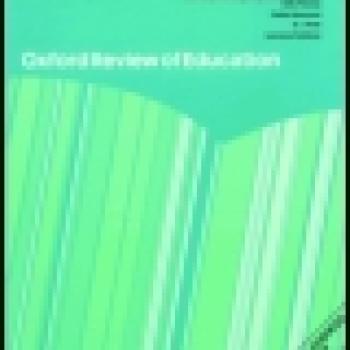Publication Information

This paper explores questions of relevance to Ethiopian primary education policy. It examines (i) the match/mismatch between government-prescribed pedagogy and actual student learning practices and (ii) the relationship between those practices and school, class and teacher level factors. The paper employs evidence from government documents on curriculum and pedagogy, time-based observations of 5,088 students in 776 mathematics classes and interviews with teachers. In recent years the government has prescribed a shift away from teacher-oriented towards student-centred methods of learning for both the first (Grades 1-4) and second (Grades 5-8) cycles of primary education with a target that 30% of class time be spent on student-centred activity. We find that student-centred activities accounted for just 10.7% of time spent, teacher-oriented activities 74.5% and "off task" 14.7%, with first cycle students more "off task" and second cycle students more ?teacher-oriented?. In both cycles a student is more likely to be "on task" rather than "off task" if taught by a teacher with a Diploma or a degree, who has not been absent recently and has received supervision within the last four weeks; and more likely to be engaged in student-centred rather than teacher-oriented activity if taught by a female teacher with a Diploma. In the first cycle, "on task" activity is associated with female teachers; in the second cycle with male. In the first cycle student-centred activity is associated with class sizes of less than 26; in the second cycle with class sizes of more than 26 and with less experienced teachers. Policy implications are explored.
Keywords: Ethiopia, primary mathematics education, learning practices, classroom observation, time on task, multilevel discrete time hazards models.
The final published version of the article is available on the journal website.

This paper explores questions of relevance to Ethiopian primary education policy. It examines (i) the match/mismatch between government-prescribed pedagogy and actual student learning practices and (ii) the relationship between those practices and school, class and teacher level factors. The paper employs evidence from government documents on curriculum and pedagogy, time-based observations of 5,088 students in 776 mathematics classes and interviews with teachers. In recent years the government has prescribed a shift away from teacher-oriented towards student-centred methods of learning for both the first (Grades 1-4) and second (Grades 5-8) cycles of primary education with a target that 30% of class time be spent on student-centred activity. We find that student-centred activities accounted for just 10.7% of time spent, teacher-oriented activities 74.5% and "off task" 14.7%, with first cycle students more "off task" and second cycle students more ?teacher-oriented?. In both cycles a student is more likely to be "on task" rather than "off task" if taught by a teacher with a Diploma or a degree, who has not been absent recently and has received supervision within the last four weeks; and more likely to be engaged in student-centred rather than teacher-oriented activity if taught by a female teacher with a Diploma. In the first cycle, "on task" activity is associated with female teachers; in the second cycle with male. In the first cycle student-centred activity is associated with class sizes of less than 26; in the second cycle with class sizes of more than 26 and with less experienced teachers. Policy implications are explored.
Keywords: Ethiopia, primary mathematics education, learning practices, classroom observation, time on task, multilevel discrete time hazards models.
The final published version of the article is available on the journal website.

